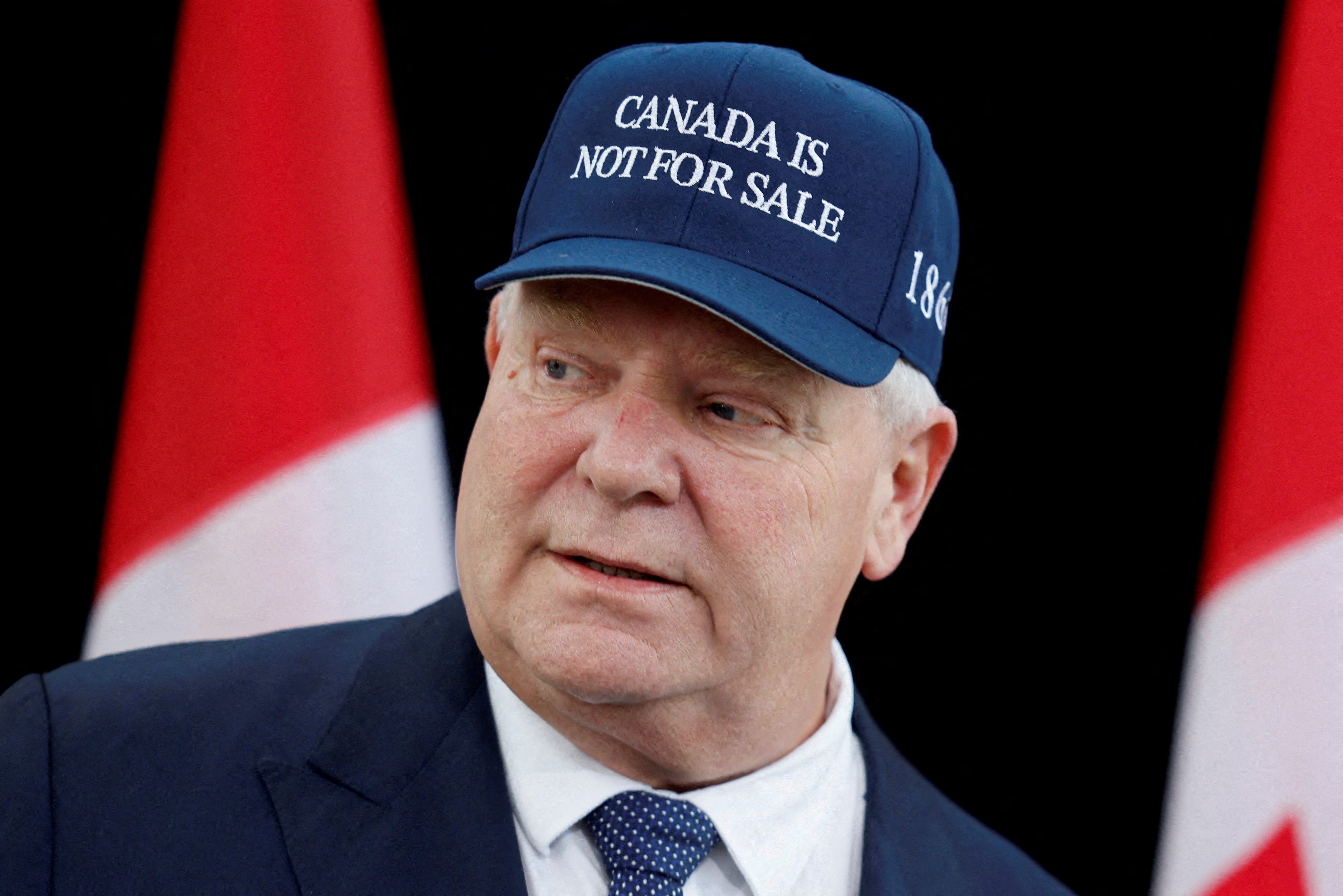President Donald Trump threatened to double tariffs on Canadian steel and aluminum exports but reversed course after Ontario Premier Doug Ford agreed to suspend a planned surcharge on electricity exports to the U.S. The incident unsettled financial markets already jittery over trade policies.
Trump steels against trade foes

Key Takeaways:
- President Trump threatened to increase tariffs on Canadian steel and aluminum imports to 50%.
- Ontario suspended a 25% surcharge on electricity exports to Minnesota, Michigan, and New York.
- Trump backed off the tariff increase following Canada’s concession.
- The tariff dispute caused volatility in U.S. financial markets amid trade tensions.
- The event highlights the impact of aggressive trade policies on international relations.
Trade Tensions Erupt Over Steel and Aluminum Tariffs
President Donald Trump’s increased tariffs on steel and aluminum imports took effect Wednesday, marking a significant moment in U.S.-Canada trade relations. The lead-up to the tariff deadline was fraught with tension as Trump threatened to double the duties on Canadian steel and aluminum exports to 50%.
Trump’s Threat to Double Tariffs
On Tuesday, the president escalated the trade dispute by announcing plans to raise tariffs on Canadian steel and aluminum from 25% to 50%. This aggressive move aimed to pressure Canada amid ongoing negotiations and address what the administration perceives as unfair trade practices.
Canada’s Response and Concession
In response, Ontario Premier Doug Ford agreed to suspend his province’s decision to impose a 25% surcharge on electricity exports to Minnesota, Michigan, and New York. The surcharge had been implemented as a countermeasure to earlier U.S. tariffs but was halted to alleviate escalating tensions.
Resolution and Reversal
Following Canada’s concession, Trump backed off his plan to double the tariffs. The suspension of the electricity surcharge by Ontario was a significant factor in the reversal, highlighting the importance of mutual compromise in international trade disputes.
Financial Markets React
The incident unsettled U.S. financial markets already jittery over the president’s broad tariff offensive. Investors reacted to the prospect of escalating trade tensions between the neighboring countries, underscoring the economic impact of such policy decisions.
Implications for Future Trade Relations
This episode reflects ongoing challenges and unpredictability in trade relations under the current administration. While the immediate crisis was averted, it underscores the delicate balance in international trade and the potential for rapid escalation without diplomatic interventions.
Conclusion
The temporary resolution between the U.S. and Canada demonstrates the complexities of modern trade negotiations. As both nations navigate these challenges, the importance of diplomacy and measured responses remains paramount to maintaining economic stability and strong bilateral relations.











